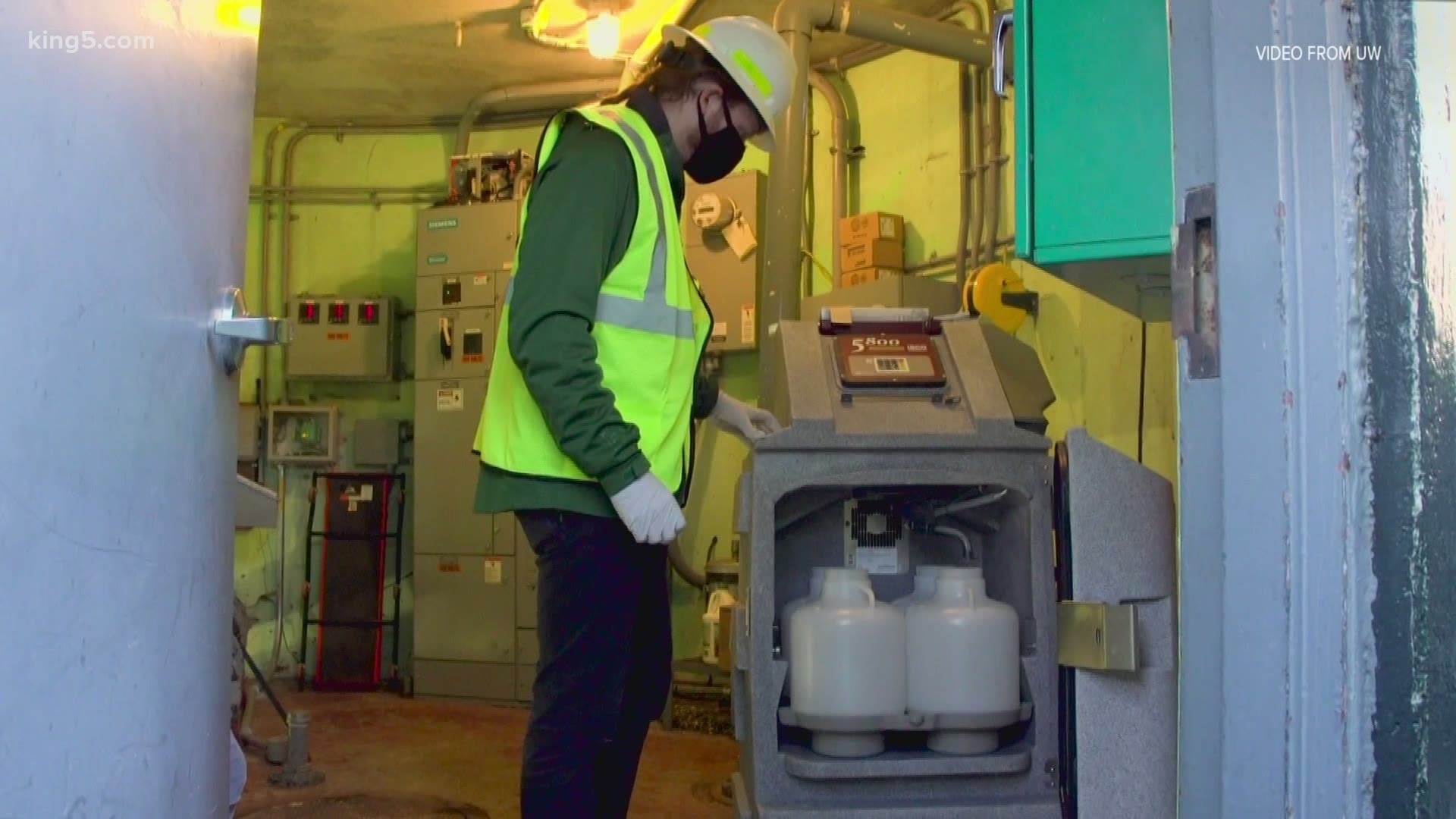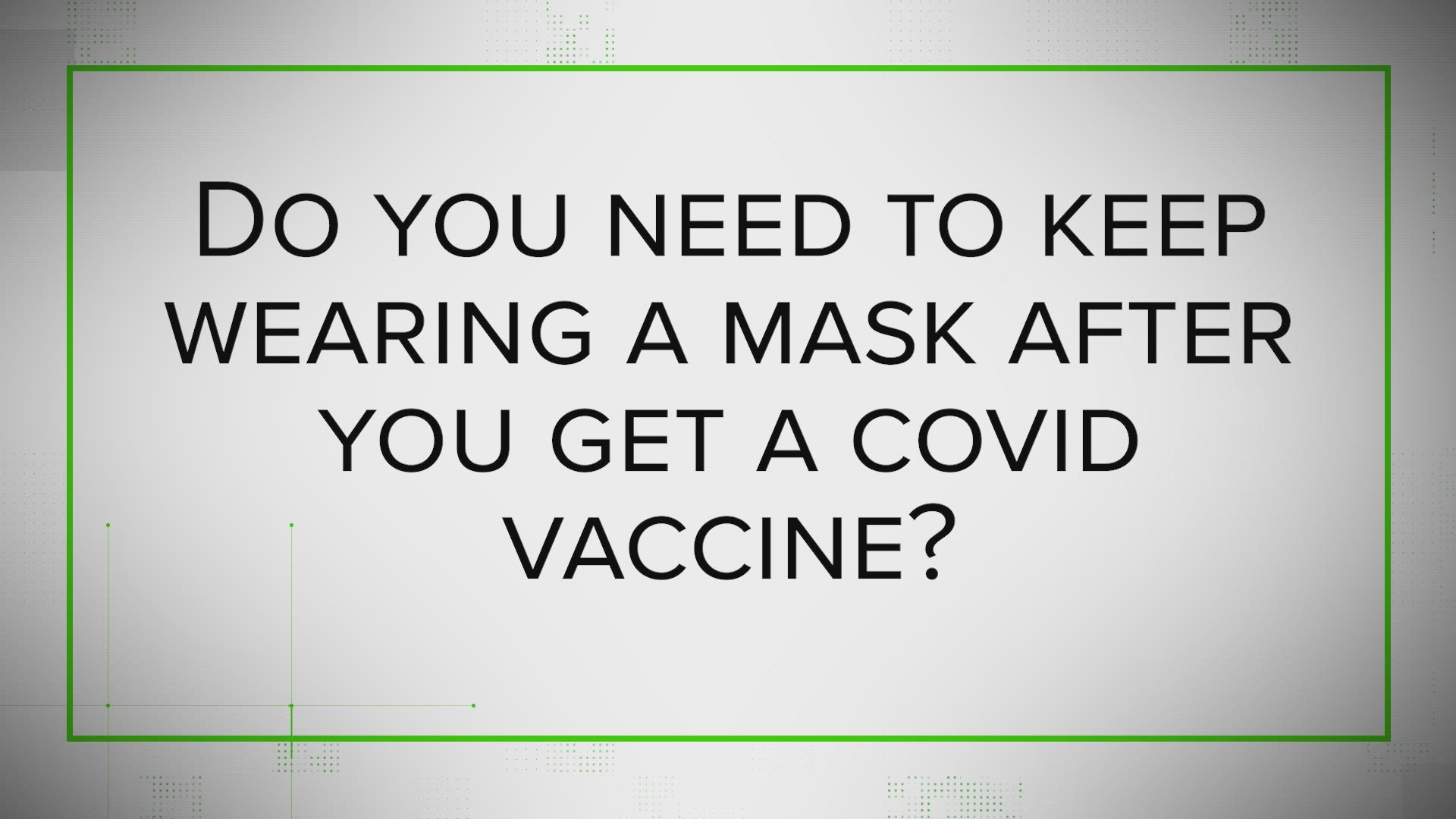University of Washington researchers are testing a unique approach to finding out if specific neighborhoods are experiencing COVID-19 outbreaks.
Researchers are using wastewater, pulled from pumping stations, to compile data on coronavirus trends.
"We go to the pumping station, and we take a sample, take it back to the lab, and then we do the same tests as you do when you take a swab sample," said Mari Winkler, a UW professor of civil and environmental engineering.
Researchers say by collecting sewage samples from neighborhoods, community outbreaks can be identified while protecting people’s privacy.
Winkler says this anonymous approach to tracking the virus can help researchers figure out where the fire is burning.
"It allows you to target these neighborhoods with policies. As vaccinations roll out, we would expect the viral signals to go down," said Pieter Candry, UW postdoctoral researcher in civil and environmental engineering.
This isn't a new concept. Researchers across the country, including in Whatcom County, are doing something similar, but not on a hyperlocal level.
Anonymous detecting can serve as a way to account for asymptomatic people, vulnerable populations with less access to health care and individual testing, and those who may avoid testing due to the fear of discrimination from positive test results.
"If there are people that are not getting targeted by the vaccination programs, if people are skeptical about vaccination programs, these kinds of approaches would allow you to monitor these populations and actually see whether vaccination is reaching the people that it needs to reach," said Candry.
UW researchers are still testing this method. If it's adopted, it will be the first of its kind in Seattle, eventually tackling COVID-19 underground.
"To find hotspots and address these with targeted policies... we don't need to lock down an entire city or the entire country, but really go down to the neighborhoods, and sub-neighborhood level to mitigate the spread of COVID-19," said Candry.
Researchers will continue to develop and refine this testing method, and hope it will help with COVID-19 detection efforts and vaccine roll-out strategies.


